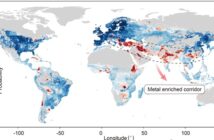The £3.5m SHAKE Climate Change Programme has announced its first three ventures to invest in.
Energy from manure, tools for smarter pest management and a yield boosting nanotech are the ideas behind three early stage companies selected by the unique fund.
SHAKE funds and trains entrepreneurs and start-ups who have innovative solutions to tackle climate change linked to the agri-food sector, which contributes more than a quarter of global emissions.
SHAKE was set up by a consortium of leading scientific research and academic institutions last year in the wake of the climate emergency, with financial backing from the UK-based charitable arm of a major European bank.
Professor Angela Karp, interim Director and CEO of the world’s oldest agricultural research institute, Rothamsted Research, co-developed the programme with partners at Cranfield University, UCL (University College London), and the University of Hertfordshire.
She said: “I’m delighted to be able to announce these successful ventures, and we look forward to working with them, and those that will follow over the coming months and years.
“They were up against tough competition, but all three of them have displayed great ingenuity in their initial ideas to help reduce the climate impact of food and farming, and they have taken really well to the training and mentorship we have provided so far.
“I am fully confident they will continue to go from strength to strength.”
The successful companies, who each receive £140k plus two years of dedicated mentoring and support, are:
EcoNomad Solutions (London) help small farms to improve resource management sustainability and agricultural waste recycling. Their proprietary technology includes biogas and nutrient recovery systems suitable for even the smallest of smallholders.
Glaia Ltd (Bristol) develop nanotechnology-based solutions for sustainable agriculture. Their first family of products, the sugar-dots, increase crop yields, reducing carbon inputs, and allowing crops to be farmed outside their traditional growing regions.
PheroSyn Ltd (Herts) whose mission is to scale up the production of and make available pest insect pheromones that can be deployed to protect crops and reduce the use of pesticides. This will also reduce fossil fuel consumption linked to pesticide production and subsequent on-farm applications. Their first products are designed to lure midges that attack wheat, peas and pears away from these crops.
Professor Karp said: “There has been a lot of publicity recently around the environmental impact especially of eating meat and intensive agricultural crop production – but the contribution of agri-food to our climate footprint is so much more complex and wider than that.
“It has been really exciting to see that this entrepreneurship support programme has attracted ventures with innovations offering solutions across that wide spectrum.
“We are very confident the first three to receive investment will help make farming part of the solution and look forward to continue to support them in that journey over the next year or so.”
Over the nine-year programme, 15 successful ventures will receive up to a total amount of £140,000 each, plus two years of high-quality training and mentoring from leading experts in business and science, to help further develop their ventures.
The SHAKE Climate Change programme is specifically designed to attract entrepreneurs or start-ups who have developed early stage science or tech-based ideas that can have a significant impact on climate change, as well as form the basis of a sustainable and socially responsible business within the sector.
The programme is funded by the Societe Generale UK Foundation, the independent corporate foundation of Societe Generale Group in the UK. Education and employability are the two key pillars of the Group’s Citizenship programme, with promoting innovation and supporting entrepreneurs central to its wider strategy.
A spokesperson for the Societe Generale UK Foundation Board of Trustees said: “Through this funding, the Societe Generale UK Foundation is able to help to fund a significant programme which aims to leverage the best minds in science and business and combine this with entrepreneurial spirit, innovation, and the technological know-how of teams and individuals to truly make a difference in addressing the climate agenda.
“As well as receiving funding under the programme, entrepreneurs will benefit from mentoring and training programmes from world-class institutions to help make their projects viable, which can in turn lead to the creation of jobs in this important area.”
Last summer, approximately 17 entrepreneurs and teams were selected to participate in an intensive residential workshop culminating in them pitching their ideas to a panel of experts.
Of this initial cohort, ten were chosen for a further three-months of intense training to build their ventures.
The three successful ventures were then recommended to receive £140,000 funding to develop their businesses under continual mentorship for a further 8-12 months, followed by aftercare support.
Two additional similar waves will follow with the programme continuing to support entrepreneurs until 2027. The 2020 call out received 30 applications covering a wide spectrum of innovative ideas. 10 have made it through the first stage of the second wave, which launched just this month.
Interested applicants should visit the www.shakeclimate.org website or email the programme manager, Tinne Midtgaard at info@shakeclimate.org




